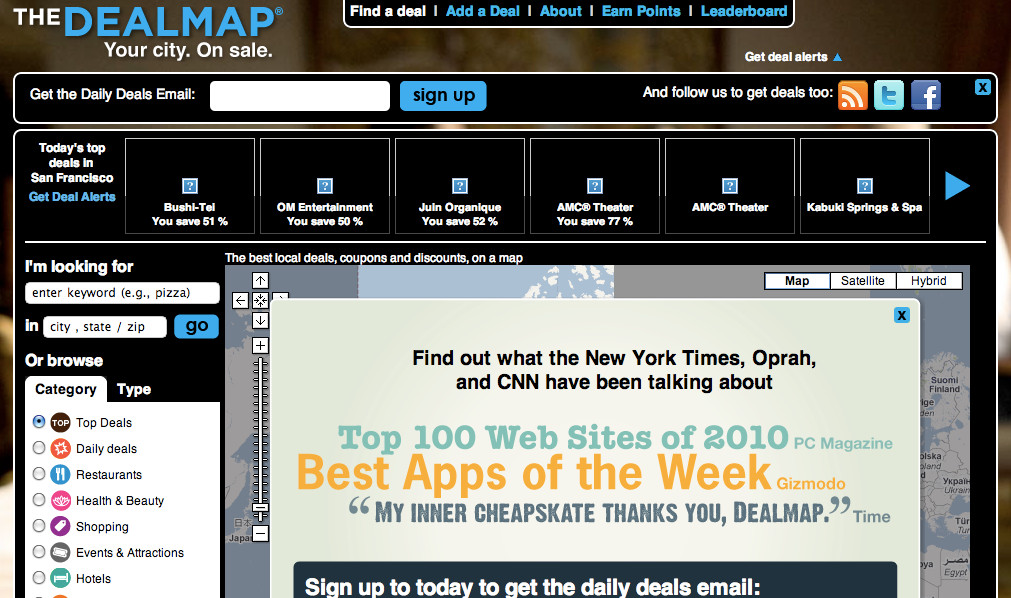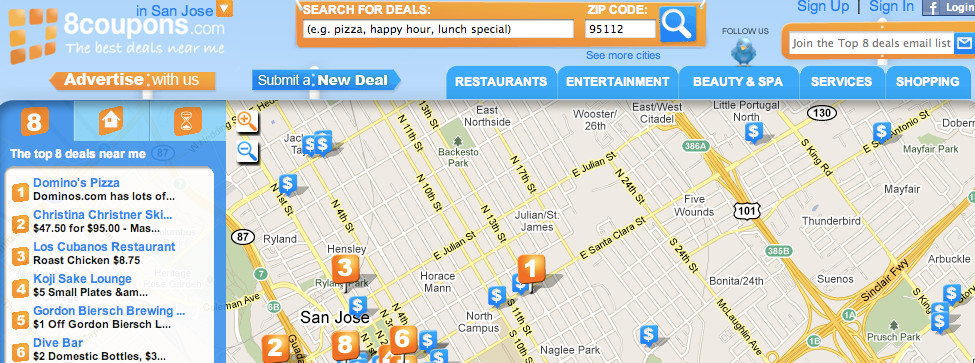Lift group deal revenues by increasing distribution
A key take away from the BIA Kelsey 2011 Interactive Local Media conference is the value of deal aggregators. Once a group deal program is launched aggregators can help increase revenues. A little work on the front end to set up these relationships pays off by making deals as distributed and "findable" as possible.
There are a variety of options we researched at the Interactive Local Media conference, produced by BIA Kelsey.
The easiest way is to launch with a software partner that already has a large distribution network. Tippr.com, a white label software provider that operates its own deals in 13 cities (third largest behind Living Social), also has 240 affiliate partners to distribute its deals and the deals of partners who use its software.
About 50 of these affiliate partners are aggregators, including Yipit, AOL ,Bing and Yahoo. Deals distributed on the network typically get a 30% revenue boost according to Tippr CEO Martin Tobias.
A side benefit of this network is that it allows smaller markets to "infil" their own group deal program with deals from the network - cutting down on organizational stress - or to participate in a national deal.
Tippr.com employs 50 programers, so don't try this at home. However, without being on Tippr's platform - or a similar provider with a large distribution network - it's still possible, though time consuming, to become part of the few largest aggregation networks. The aggregators who send the most traffic to Tippr.com according to Tobias in order of importance are: Slickdeals, Dealnews, Deal Radar, Yipit.
Here are two more that are fast growing and worth looking into:
The Deal Map's mobile aggregation app was named in the 100 Top Apps by PCMagazine. The network checks for dupes, expire dates and changes every 15 minutes and is geocoded to the "roof top level" according to Jennifer Dulski, CEO. Algorythms rank deals by performance and relevance. In the future, Dulski, says, the site will include more personalization and targeting. However, "the mobile transaction flow is still very clunky" she said. Since Group deals are really discounted gift certificates, the challenge is to get the process down to one click.
8Coupons.com is another good company that provides a hub for local deals. The company is more of a general coupon site - they launched New York this year and currently curate 500,000 live deals, organized into categories and cities. Unlike group deals, which are basically gift certificates discounted to more than 50% off, the site aggregates kind hyper-local coupon, some of which are not very valuable.
The challenge for aggregators is that once they get the data, they have to pay to get an audience, which portals or search engines like AOL and Yahoo already have.
Facebook is not yet in the group deal space, although they are showing offers "near you" to people who check in and opt in. Yelp is only offering its own deals.
In conclusion, access to a distribution network should be an important consideration when choosing software, especially as the group deal space becomes more crowded. Also important, as we've noted elsewhere on this site, is live customer service to handle credit card support issues.

The author, Alisa Cromer is publisher of a variety of online media, including LocalMediaInsider and MediaExecsTech, developed while on a fellowship with the Reynolds Journalism Institute and which has evolved into a leading marketing company for media technology start-ups. In 2017 she founded Worldstir.com, an online magazine, to showcases perspectives from around the world on new topic each month, translated from and to the top five languages in the world.









